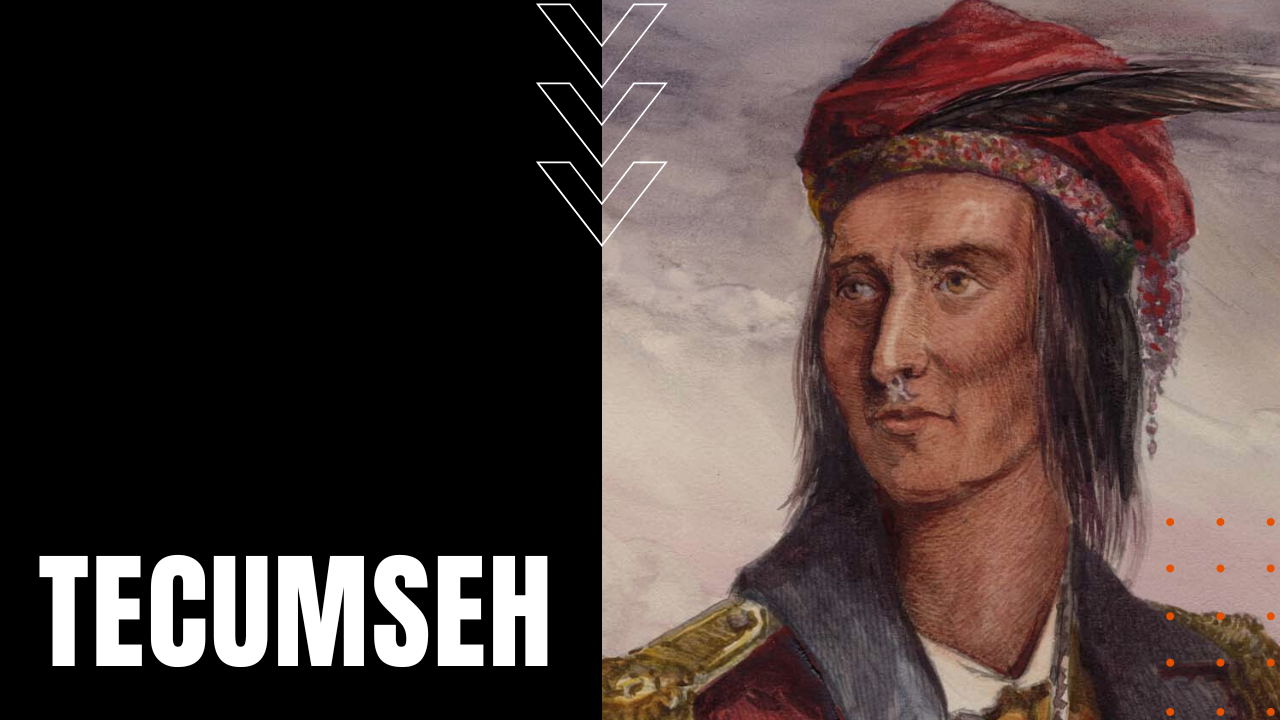Tecumseh

Born in 1768 Ohio, Tecumseh was raised by an older sister after his father, Chief Puckeshinwa was killed at the Battle of Point Pleasant, while his older brother Cheeseekau taught him the ways of a Shawnee warrior. Learning to despise white settlers for their brutal attacks on his people, after Cheeseekau was killed during a raid into Tennessee, Tecumseh led a band of Shawnee warriors back to Ohio to help Chief Blue Jacket battle the U.S. Army, defeating General Arthur St. Clair at the 1791 Battle of Wabash, only to suffer a resounding Indian defeat at the Battle of Fallen Timbers, where Tecumseh refused to sign the Treaty of Greenville, which led to the forfeiture of Native American lands in the Northwest Territory.
A Respected Leader
By 1805, Tecumseh had become a respected leader amongst the Shawnees of Ohio, until his younger brother Lalawethika had an alcohol-induced vision to lead his people in a war to reclaim their lost lands and culture. In 1808, Lalawethika changed his name to Tenskwatawa or the Prophet, encouraging Tecumseh to join him at Prophetstown in present-day Indiana, where Tecumseh forged a multi-tribal alliance among Native Americans of the Great Lakes Region.
An Alliance Builder
Traveling far and wide on recruitment campaigns, Tecumseh delivered powerful speeches, encouraging Native Americans to unite in war to thwart white settlers and resist the white man’s corrupted way of life. In 1811, while Tecumseh was away on a recruitment campaign, Indiana Territory Governor and future president, William Henry Harrison and his 1,000-man force agreed to wait for Tecumseh’s return before attacking Prophetstown, but during the night, Tenskwatawa riled up his warriors for a fight, leading to their defeat at the Battle of Tippecanoe, which effectively ended Tecumseh’s hard-won tribal alliance when they abandoned Prophetstown the following day.
War of 1812
After the defeat, Tecumseh rallied his remaining forces in support of the British in the War of 1812, playing an instrumental role in the defeat of American forces during the Siege of Detroit. He then joined forces with British Major-General Henry Proctor for a planned invasion of Ohio, where Tecumseh skirmished with Harrison and his army.
A Warrior’s End
When Harrison invaded Canada, Tecumseh and his warriors were forced into retreat beside the British, until Harrison pursued them into present-day Ontario, leading to an overwhelming British defeat at the Battle of the Thames and Tecumseh’s death in battle on October 5th, 1813. Tecumseh’s death ended all hope of a pan-Indian alliance in the Northwest Territory, leading to the eventual removal of native tribes onto reservations far from their native lands.
